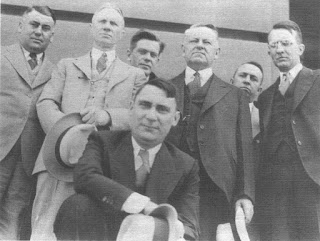You
might hear a lot of people question why so many movies have such a similar
tone; as if they're all of the same genre, or made by a few filmmakers with
exactly the same tastes. You may have
noticed this yourself and added your voice to the plethora of bloggers,
vloggers, and other fans who have expressed their frustrations at how all
movies seem alike now.
This
might seem a bit like the old man going, "it' ain't like the good ol'
days," but there's a strong truth to it, and a reason for it. As an example, when Star Wars and Star Trek
movies came out in the late '70s and early '80s, there was a strong distinction
between them. You went to Star Wars and
got an action packed adventure. You went
to Star Trek and got an intriguing mystery.
Even the action scenes were completely different. In Star Wars you got fast cuts with small
ships or individuals shooting rapid fire shots at one another. In Star Trek you had longer wide shots of
large ships laboriously turning on one another while their crews discussed the
best way to win.
Neither
style was better. It was like going to a
restaurant. No one wants the same food
every day. If you want Mexican food, you
go to a Mexican restaurant. If you want
Italian food, you go to an Italian restaurant.
You switch it up to have a variety.
Hell, even films made by the same director had very different
feels. Take for instance Spielberg's
Raiders of the Lost Ark versus Jaws. Their
tone and style was so different that they seem like they're made by completely
different filmmakers.
But
now you could replace the title of one film with another and hardly anyone
would notice. In computer gaming terms,
it's like changing the skins. So what
caused this? Well, there are numerous
theories, and I'm sure many of them have truth as any subject of this magnitude
will naturally have a lot of answers.
But I've come to believe there's one overall reason.
Screenplay
formulas.
For
decades, filmmakers and theorists have been trying to narrow down what makes a
film "work." Understanding
this will cause filmmaking to be less risky, and solve psychological mysteries
of taste. So people set about writing
books on screenwriting, observing what has been respected and loved in movies,
and trying to capture the reason for the magic in them. The result of all this research was a
multitude of formulas. Books from
Adventures in the Screen Trade to The Foundations of Screenwriting to Story to
the Writer's Journey all try to identify the genie in the bottle.
These
books do provide a basis for good practices in screenwriting. For instance, they remind a writer to not
linger too long in their introduction of the characters and the situation. They provide guidance on moving the plot
forward, and ideas for creating dynamic story beats. These are positive guidelines to follow.

